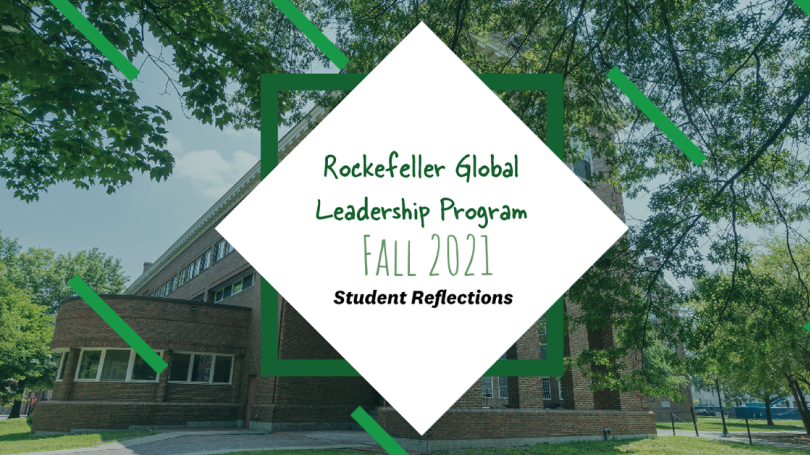
- Public Policy
- Leadership
- Funding
- News & Events
- About the Center
Back to Top Nav
Back to Top Nav
Back to Top Nav
Back to Top Nav
Over the course of RGLP I've had much concentrated exposure to differing cultural norms, values, and shared experiences. This has not necessarily been a comfortable process; from Capoeira to eating with chopsticks (which is probably disproportionately hard for me compared to others) to considering and overcoming my own cultural biases. I've learned that one of the most important tools one can employ in conducting dialogues across difference is a toleration of ambiguity and uncertainty. Having an unfamiliarity or discomfort with differing cultural norms is simply part of the experience of intercultural relationships. What matters more is how one overcomes these differences and the communication inherently tied up in such an act. Expressing differing backgrounds, perspectives, and cultural expectations can go a long way in resolving conflict or tension before it arises. When we approach situations from a place of understanding and communication, the outcome is more often than not leniency and growth. Both parties learn from and about each other and come away from the experience gratified rather than upset.
This sort of communication, however, cannot be conducted in a vacuum. It comprises part of a larger understanding of empathy, language, and intercultural awareness that goes far beyond one's own experiences and understanding. In short, it necessitates a world view that incorporates diversity and inclusion, and actively works towards achievement on both of these fronts. Recognizing legacies and layers, blind and apparent biases, and the foundation of one's behavior becomes an overly important part of successfully communicating inter-culturally. Additionally, it is important to take things in stride -- to use humor as a useful tool in overcoming tensions (Sadhana!), and to recognize that people make mistakes, have biased perceptions, and work towards overcoming these in a respectful and mature manner. In the end, having the tools necessary to build a platform for dialogue across difference is one of the most important skills one can develop in an increasingly interconnected world. But it also makes one more understanding, empathetic, and is undoubtedly a skillset I aspire to develop.